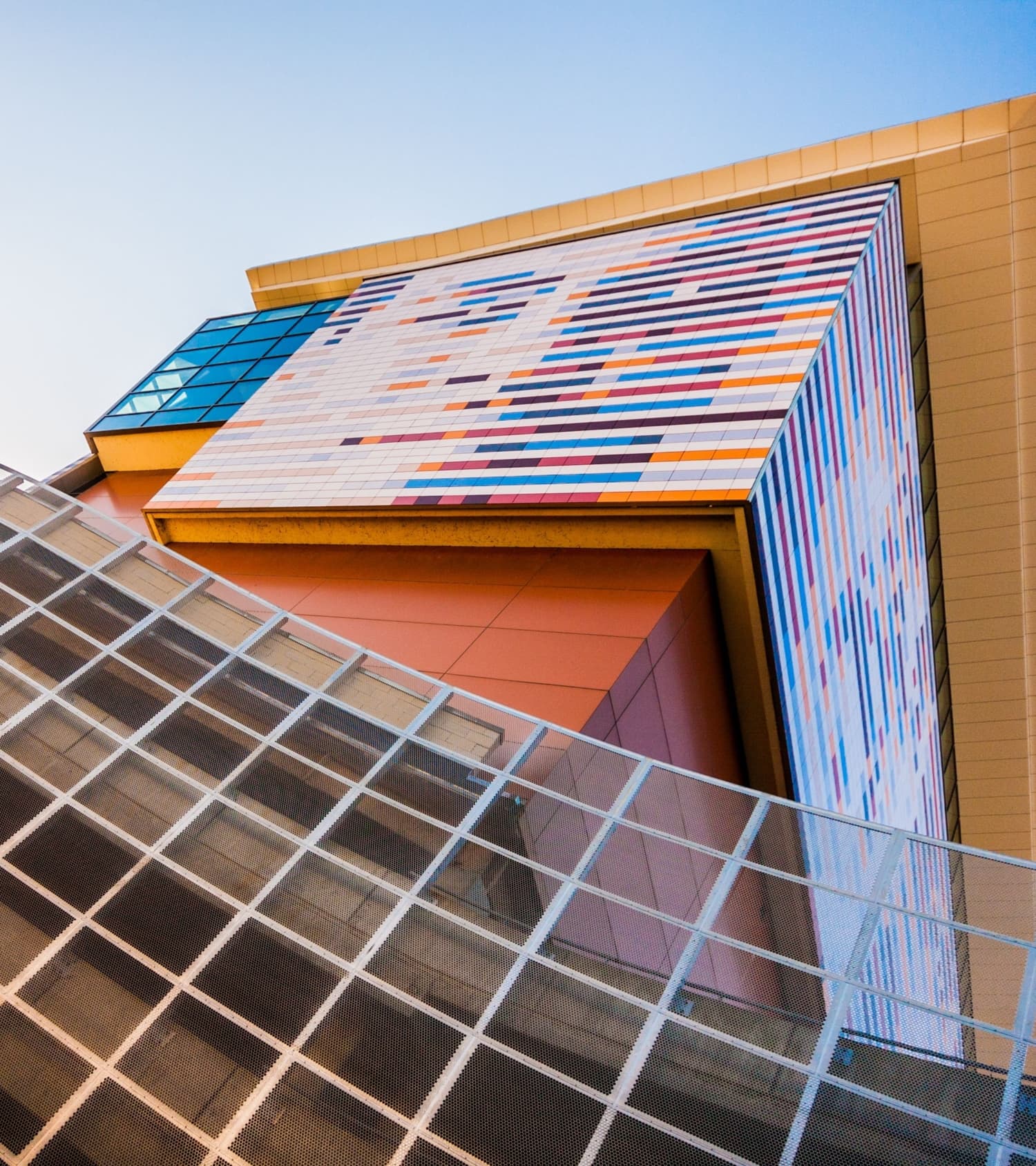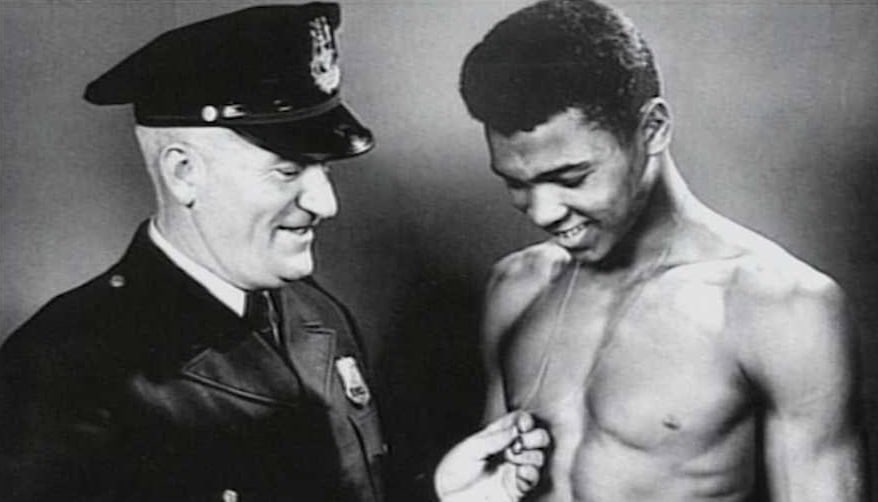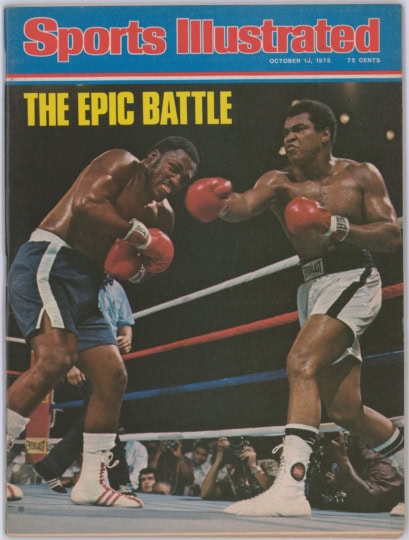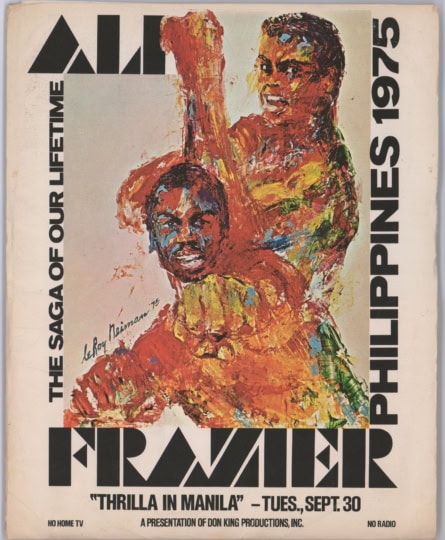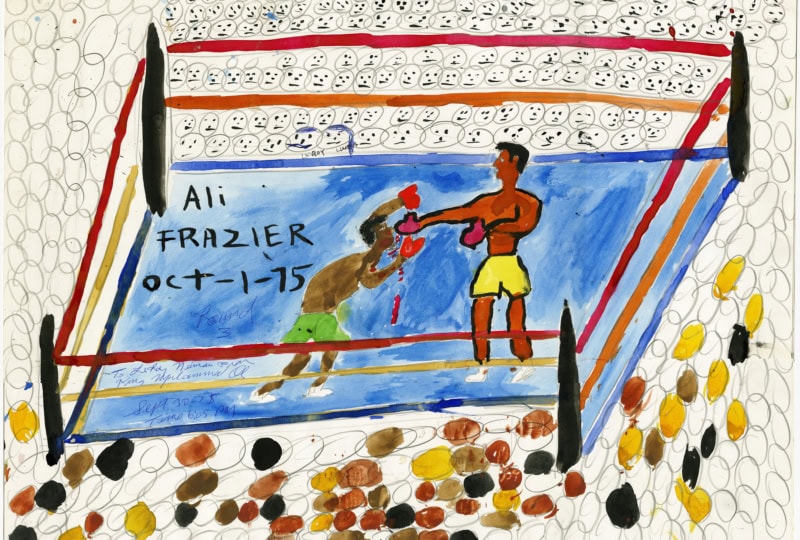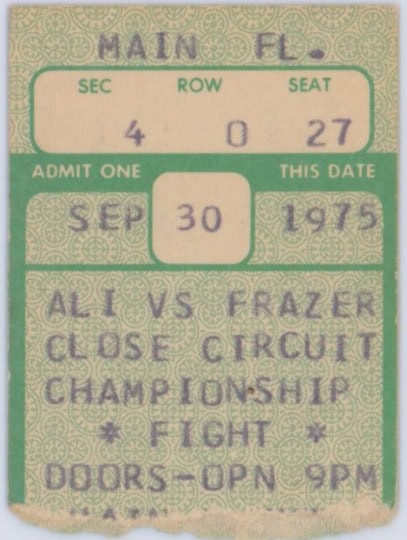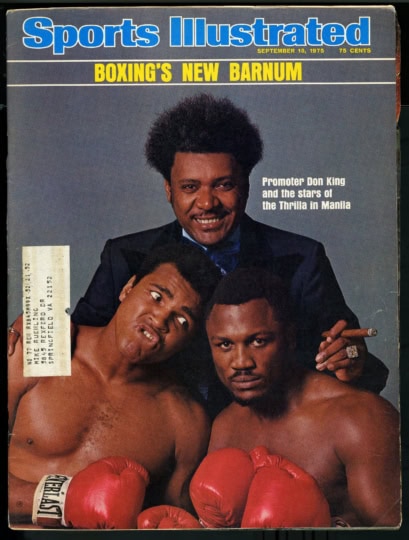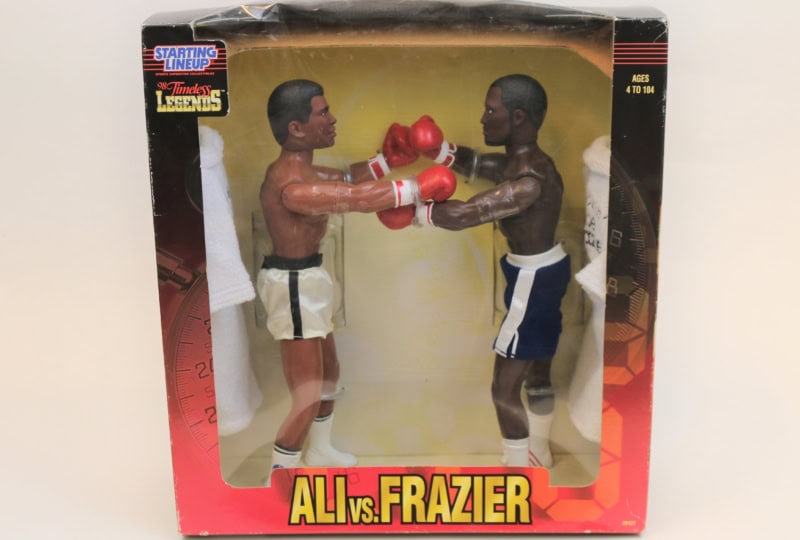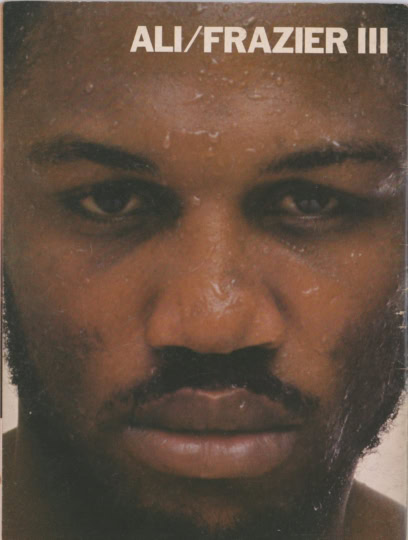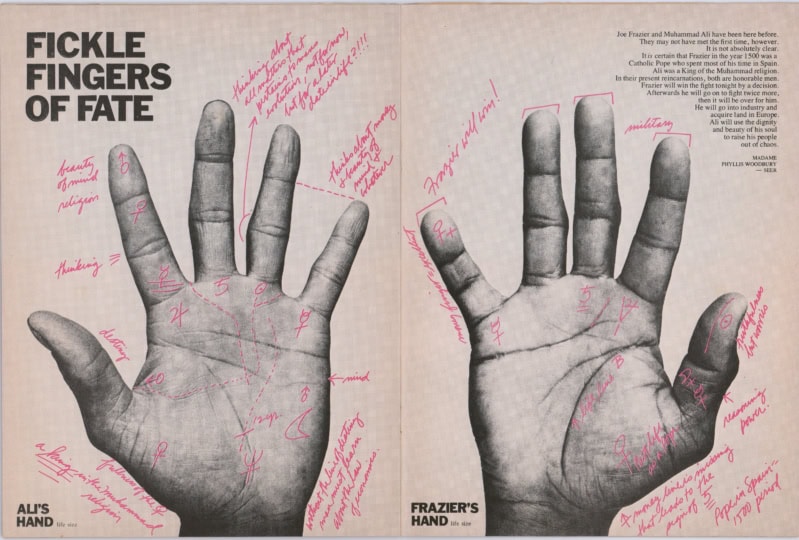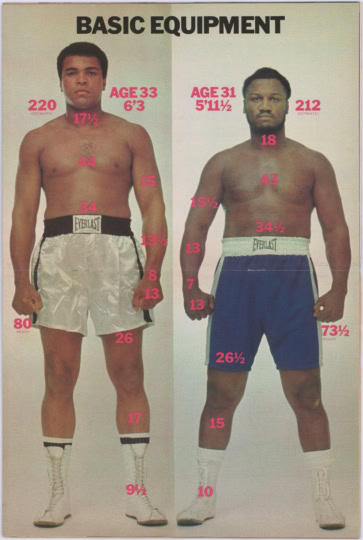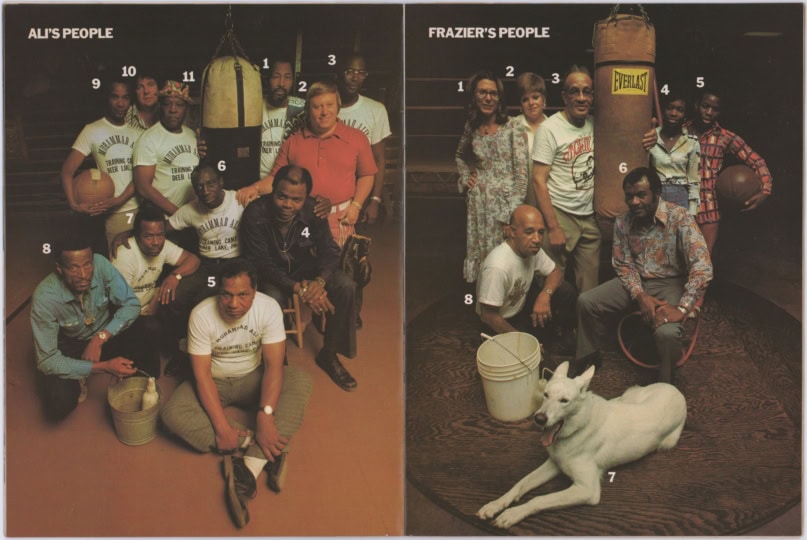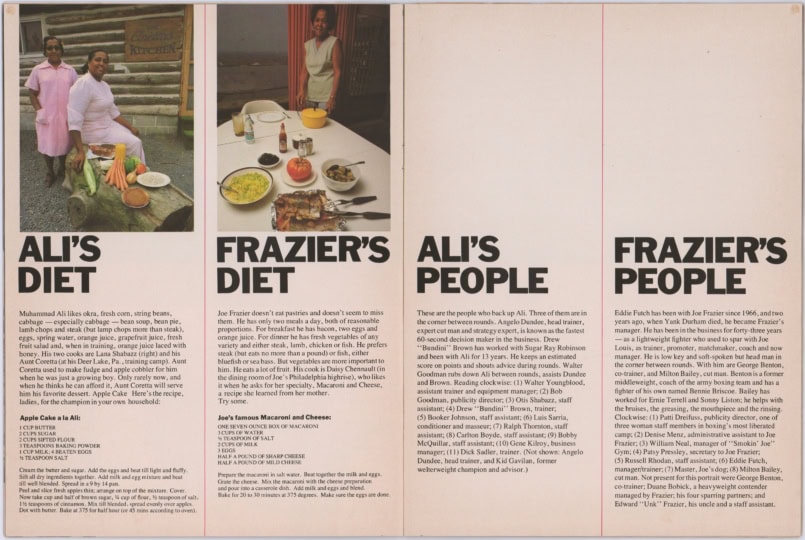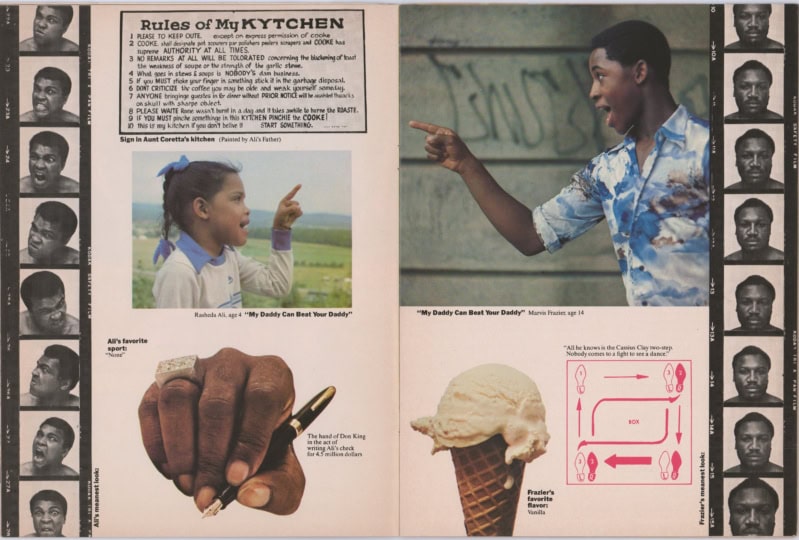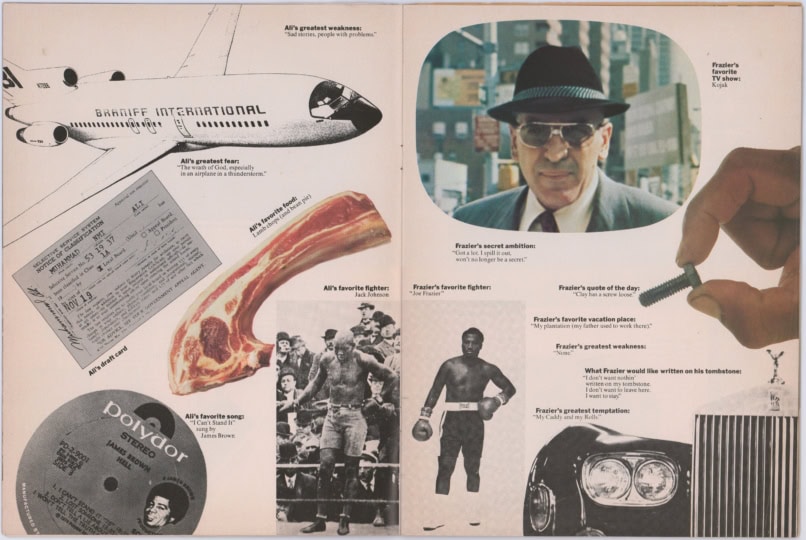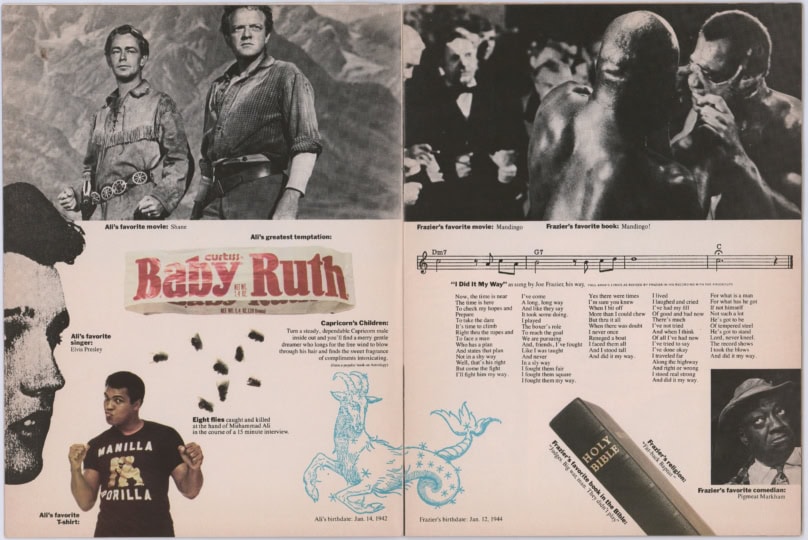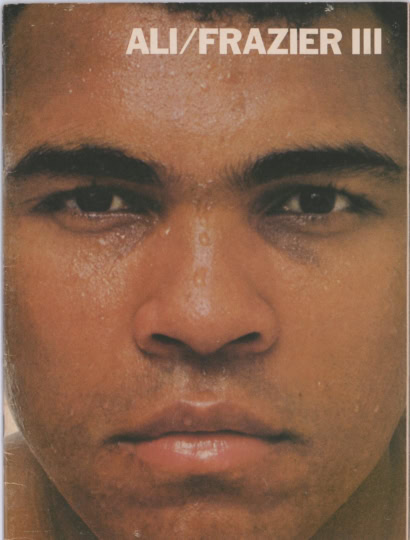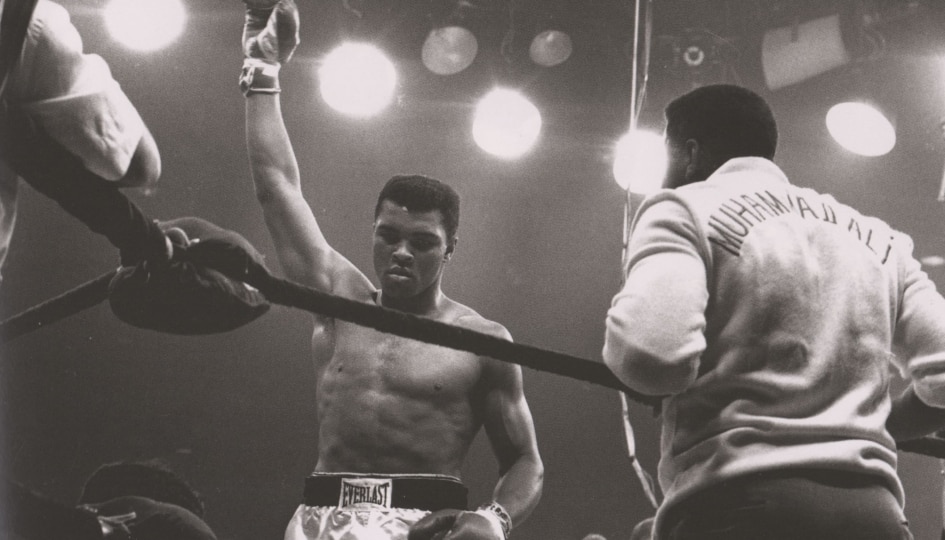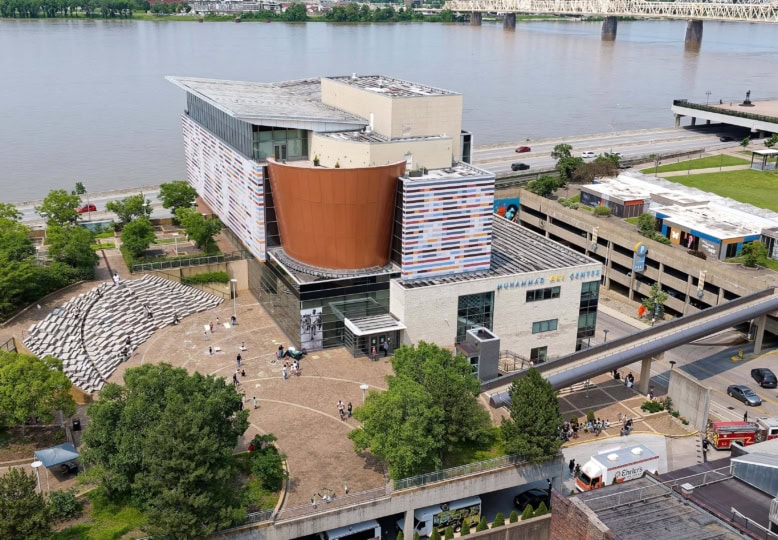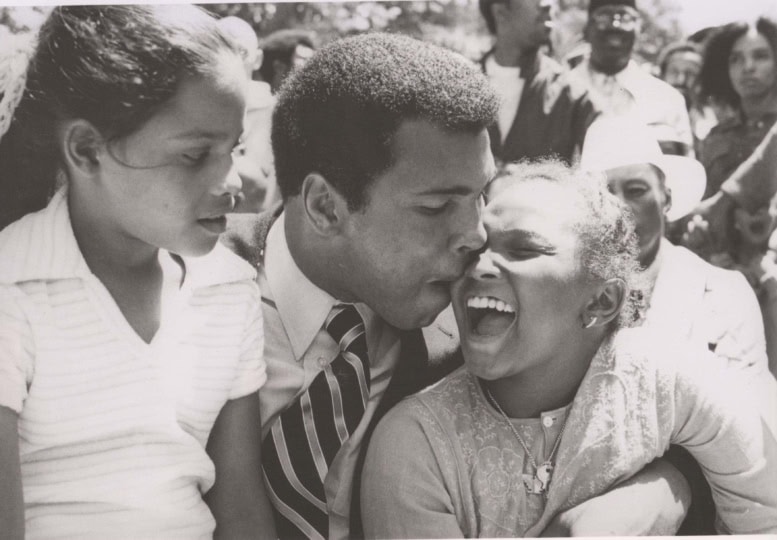Thrilla in Manila: 50th Anniversary
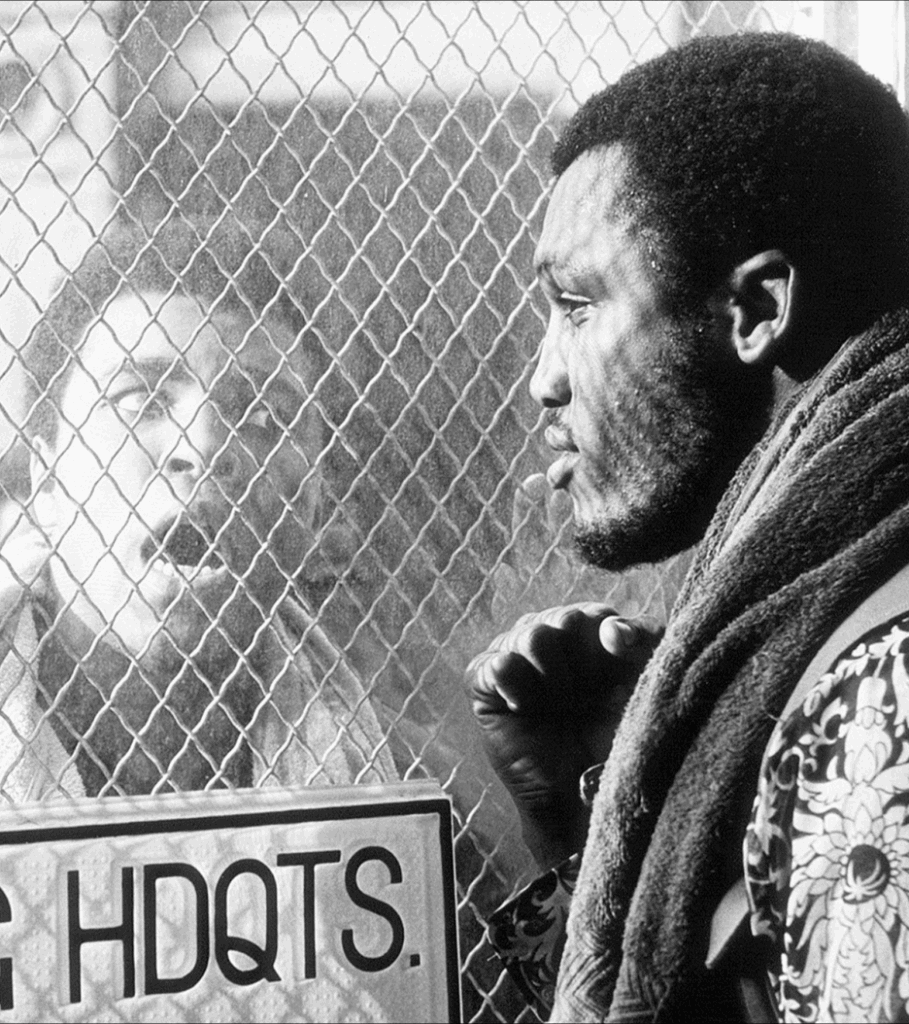
Friendship to Fierce Rivals
The history behind Muhammad Ali and Joe Frazier leading to Thrilla in Manila, their third and final matchup.
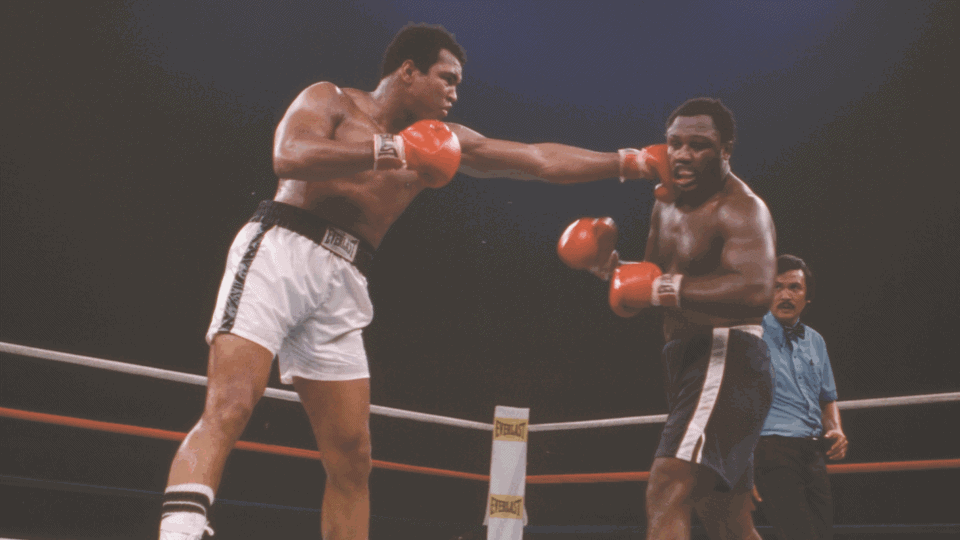
Muhammad Ali first met Joe Frazier in March 1967 after Ali’s defeat of Zora Folley at Madison Square Garden, just a month before his exile from boxing for refusing induction to fight in the Vietnam War.
From that time and during Ali’s exile, the two built a friendship. Frazier showed loyalty to Ali, offering both public support and private help. He would slip Ali a couple hundred dollars when he could, helping him cover expenses. More importantly, Frazier spoke out on his behalf, advocating for Ali’s right to return to the ring.
During his forced absence from the ring, Ali wrestled with frustration and uncertainty. Though confident publicly, he faced moments of doubt, missing the thrill of competition and the discipline of daily training. Ali knew that to preserve his career, he had to stay relevant in the public eye. As he looked toward his comeback, Frazier, popular and powerful, was both a friend and an inevitable challenger.
In late 1969, their relationship began to sour. According to Sports Illustrated writer Mark Kram, their bond began to fray in Philadelphia while Ali was there visiting. This is where Ali first started his taunting, creating a public rhetoric in which he called Frazier an Uncle Tom and challenged Frazier publicly. Ali claimed Philadelphia wasn’t big enough for the two world champions and called Frazier out for a fight at his home gym.
What may have started as a publicity stunt for Ali, an effort to keep himself in the spotlight during exile, cut Frazier deeply. For him, the insults felt like betrayal. Out of that fracture, though, emerged the fiercest and most storied rivalry in sports, one that defined both men’s legacies forever and culminated at their final fight in 1975.
Watch Interview
Muhammad Ali and Joe Frazier speak on the Mike Douglas Show in 1969.
Watch Interview
Muhammad Ali and Joe Frazier speak on the Mike Douglas Show in 1969.
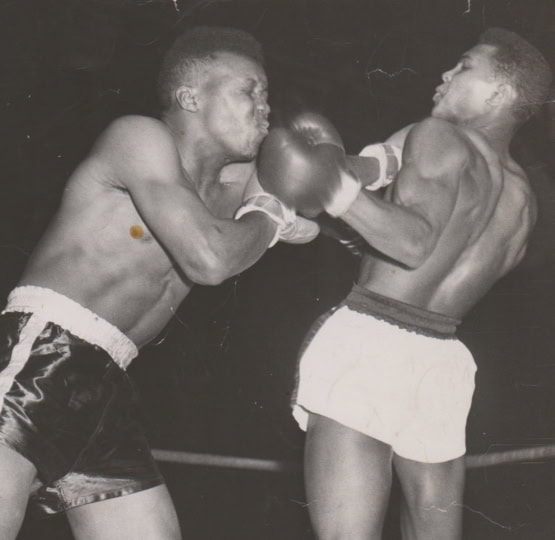
Early Upbringings
Ali and Frazier's childhoods could not be more different, despite leading them both to boxing greatness.
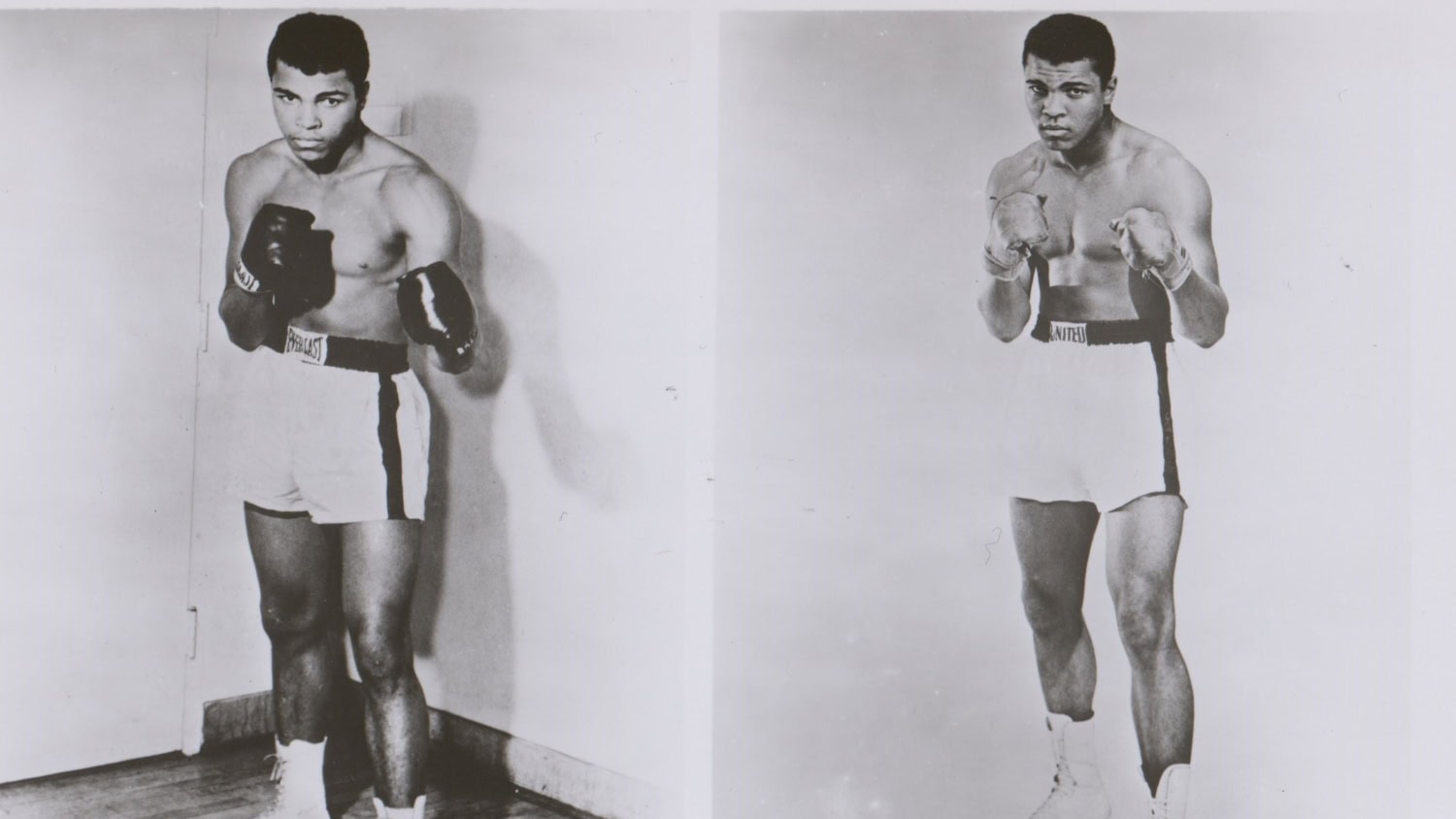
The Red Bike Moment
Muhammad Ali, born Cassius Marcellus Clay, Jr. on January 17, 1942, grew up in Louisville, Kentucky, the son of Cassius Sr., a sign and mural painter, and Odessa “Bird” Clay, a homemaker. The Clays lived in a relatively stable, middle-class neighborhood in the city’s West End, where their neighbors were teachers, lawyers, postal workers, etc.
When Ali was 12 years old, his red bike was stolen, an experience that led him to Officer Joe Martin, who introduced he and his brother to boxing. From that moment, he fully dedicated himself to the sport, boldly declaring, even then, that he would one day be the greatest boxer of all time.
Building Toughness
Joe Frazier’s childhood could not have been more different. Born January 12, 1944, in Beaufort, South Carolina, he was the youngest of three surviving children born to Rubin and Dolly Frazier. The family lived in a small frame house on a 50-acre farm, their livelihood tied to the land. They grew peas, corn, cabbage, potatoes, okra, and tomatoes, and every child was expected to work. Joe became his father’s “left hand,” helping with chores from an early age. By six, he was already working twelve-hour days for a dollar.
Frazier’s toughness revealed itself early. At nine, he fought neighborhood kids with bare knuckles, and before long he built his own makeshift gym. Using scraps from the farm, he fashioned equipment, including a flour sack filled with sand for a punching bag, that would shape the fighter he became.
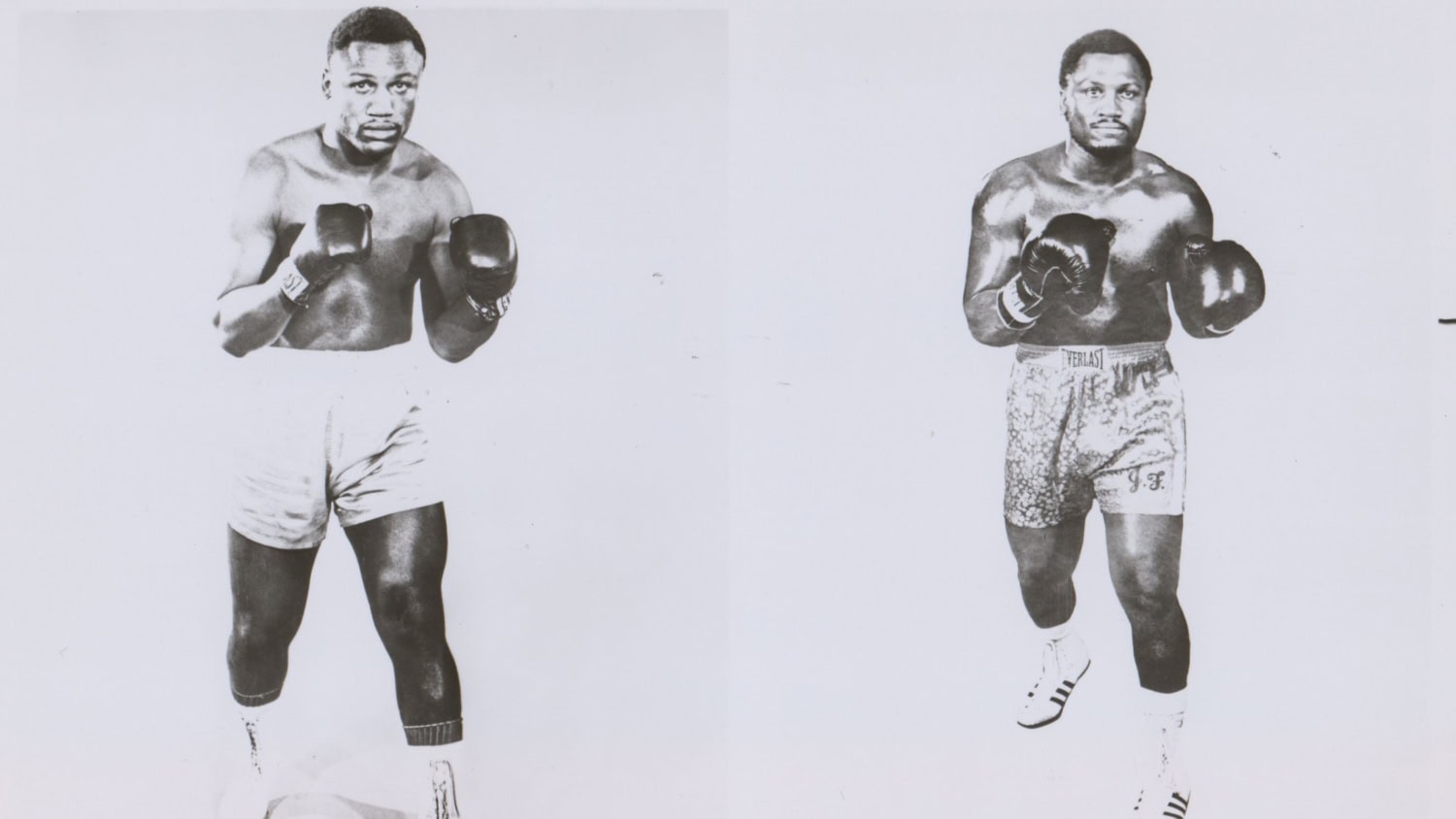
Check out our additional exhibit “Thrilla in Manila: 50 Years After the Final Bell” on our Digital Museum!
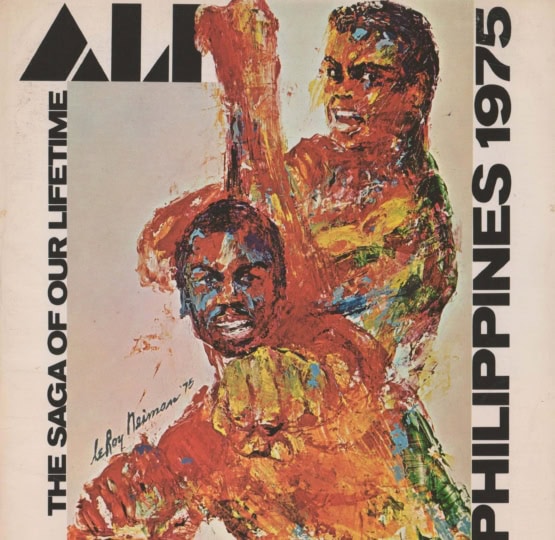
Fighter's Values
Each boxer's unique fighting style also represented values that they embodied.
The Public’s Perception
As the boxers grew into their professional careers, their fighting styles became the physical embodiment of their differences. Ali relied on speed, footwork, and defense, dancing around opponents and wearing them down. Frazier, shorter and stockier, fought with relentless pressure and a tremendous left hook.
These differences extended to the public’s perception of them. Many admired Frazier’s background and work ethic, seeing him as a working-class hero, while others celebrated Ali, or criticized him, as a radical voice for Black pride and civil rights.
To some, Frazier represented traditional American values, while Ali stood firmly as an outspoken challenger of those values. Ali’s conversion to the Nation of Islam and his conscientious objection to the Vietnam War made him a controversial public character, and people either loved or hated him.
Ali used this perceived division to his advantage. His public taunting reinforced these perceptions and sharpened the rivalry into a cultural battle as much as a sporting one.
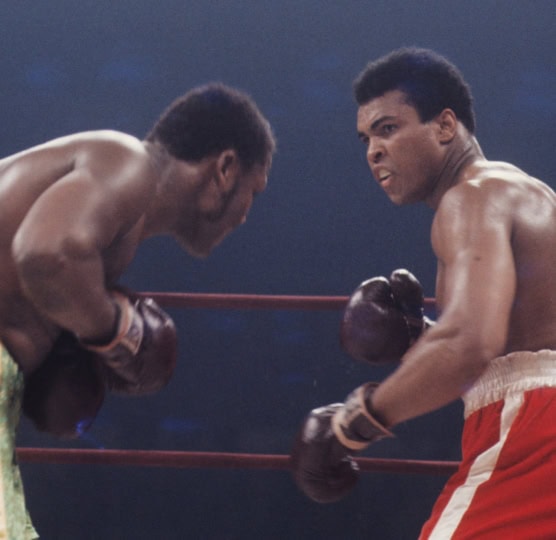
First Fights
Sparring between Ali and Frazier caused a nationwide hunger for their official matchup and rematch.
Taking it to the Ring
The Ali-Frazier trilogy began soon after Ali’s boxing licenses were reinstated and the public sparring between the two men had captured national attention.
Their first encounter took place March 8, 1971 at Madison Square Garden in New York City. Billed as the Fight of the Century, it was the first time that two undefeated heavyweight champions met to compete for the title. Frazier won by unanimous decision after a difficult 15-round fight, handing Ali the first defeat of his professional career.
Frazier initially refused a second fight against Ali, unwilling to risk his title. But Ali’s continued public provocations, including antagonizing Frazier during an interview on ABC Wide World of Sports, convinced him to agree. The second fight occurred on January 28, 1974. This time Ali took the victory home, winning by decision and evening the rivalry at one victory each.
Watch Clip
During an interview segment on ABC's Wide World of Sports, Frazier gets upset with Ali, leading to a brawl in the studio.
Watch Clip
During an interview segment on ABC's Wide World of Sports, Frazier gets upset with Ali, leading to a brawl in the studio.
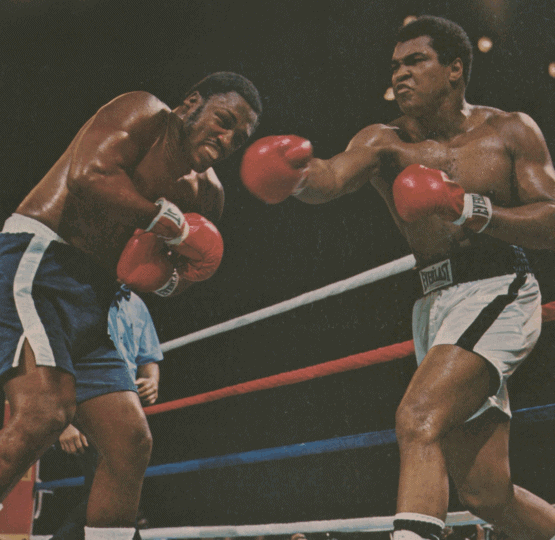
And Thrilla Makes Three
Ali and Frazier's third matchup is often dubbed as one of the most brutal bouts in boxing history.
“Joe’s gonna come out smokin’
And I ain’t gonna be jokin’
I’ll be peckin’ and pokin’
Pourin’ water on his smokin’
This might shock and amaze ya,
But I’ll retire Joe Frazier!”
-Muhammad Ali
Fight Night
On October 1, 1975, Ali and Frazier met in the ring for the third and final time in a bout dubbed the Thrilla in Manila. The fight was held in the Philippines, where the temperature inside the arena soared above 100 degrees.
Widely acknowledged as one of the most brutal matches in boxing history, the bout was the manifestation of their rivalry. Both fighters were relentless in their efforts to defeat their opponent, refusing to yield and pushing themselves to their absolute limits. But Ali took the victory. After the fourteenth round, Frazier’s corner stopped the fight, and Ali was declared the winner by technical knockout.
Watch Fight Highlights
Millions watched the fight, both live at Araneta Coliseum and over closed-circuit television and pay-per-view.
Watch Fight Highlights
Millions watched the fight, both live at Araneta Coliseum and over closed-circuit television and pay-per-view.
“We went to Manila as champions, Joe and me, and we came back as old men.”
-Muhammad Ali
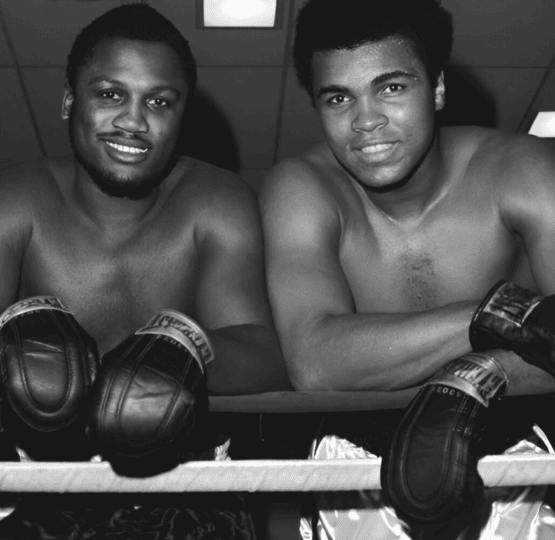
Rivals to the End
With age comes wisdom, but Ali never had the chance to fully rekindle the friendship.
Playing the Narrative and Paying Respects
Though their last fight happened decades ago, their rivalry lingered. Publicly, the two never fully rekindled their friendship, and both fighters reinforced the narrative of their dislike.
Yet with age came perspective. As Ali said, “The man who views the world at 50 the same as he did at 20 has wasted 30 years of his life.” Nearly 30 years to the day after their first fight, on March 14, 2001, Ali admitted that, “In a way, Joe’s right. I said a lot of things in the heat of the moment that I shouldn’t have said. Called him names I shouldn’t have called him. I apologize for that. I’m sorry. It was all meant to promote the fight.”
Frazier publicly accepted the apology, forgiving Ali in a statement to The New York Times, but never truly forgot the hurt the years of that rivalry rooted in him.
After his retirement, Frazier ran a gym, training boxers in Philadelphia. Frazier passed away November 7, 2011 at 67 years old. Ali and his family attended the funeral to pay their respects to the once fierce rival, and left gifts to honor the former Heavyweight Champion including a championship belt and pair of boxing gloves.
